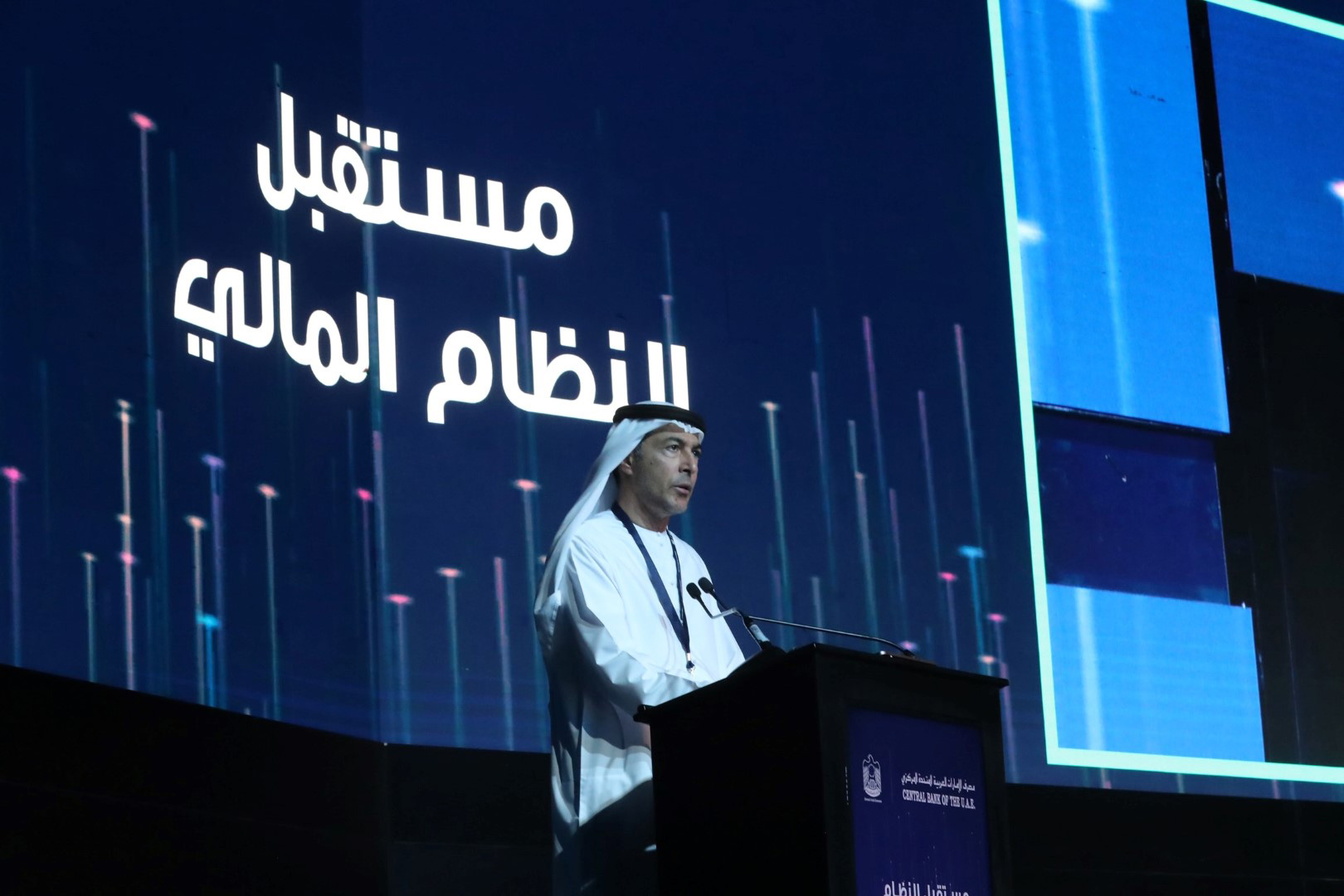[ad_1]
Khaled Mohammed Balama, Governor of the Central Bank of the United Arab Emirates (CBUAE), launched the second day of the Financial Future Conference hosted by CBUAE, highlighting the strong indicators of economic recovery in the UAE and other major economies, as well as Importance In a world seeking to achieve sustainable growth and economic resilience, Islamic finance is the driving force.
He identified qualitative measures to enhance CBUAE’s powerful digital payment system, including increasing the importance of commercial and financial payment settlement. He stated that CBUAE will maintain its supervisory and regulatory responsibilities to ensure the sustained and sustainable growth of the UAE economy.
The second day of the conference featured a series of events in the Islamic finance field, including a panel discussion on the role of Islamic finance in establishing a flexible and diverse financial system. Based on the theme of Expo 2020, Connecting Thoughts and Creating the Future, CBUAE facilitated the exchange of opinions and insights between Islamic and financial sector leaders and Shariah experts on the future of Islamic finance.
Sheikha Shamma Bint Sultan Bin Khalifa Al Nahyan, CEO of the Global Alliance for Sustainable Development, founder of the Shamma Bint Sultan Sustainable Development Initiative and co-founder of Aurora50, emphasized the key role of women in a keynote speech on the role of women in accelerating transformation Play a role in developing communities. Sheikha Shamma drew attention to the fact that women account for 50% of the world’s population, which is a demographic data that cannot be ignored in the era of the Fourth Industrial Revolution. She also mentioned the efforts made by the wise leadership of the UAE to empower women in the UAE to assume leadership positions in various departments. Today, the UAE ranks first in the region in the gender equality index of the United Nations Development Programme and 18th globally.
On the second day of the conference, the fight against financial crimes was also a prominent feature. UAE Economy Minister Abdulla Bin Touq Al Mari talked about the importance of sectoral cooperation in protecting the country from illegal financial activities.
In the keynote speech, Sheikh Abdulla Bin Bayyah, Chairman of the UAE Fatwa Committee, emphasized the value proposition of Islamic products in the ever-changing financial world. He also talked about the importance of risk sharing in providing flexible Islamic financial solutions, and affirmed the ability of Islamic financial products to meet the challenges faced by the banking and insurance industries.
One of the most important meetings discussed CBUAE’s national payment system strategy, which aims to improve the competitiveness of the UAE economy, in line with one of the ten “50 principles” to develop the best and most dynamic economy in the world in the UAE. Dr. Sabri Hamed Al Azazi, Assistant Governor of CBUAE Support Services and Operations, suggested that the future of payment systems lies in the use of digital payment solutions instead of fiat currencies. Dr. Sabri also emphasized the role of CBUAE in the continuous innovation and investment of emerging technologies to serve the financial sector and ensure consistency with international best practices.
Dr. Mohammad Al Kuwaiti, Head of Cyber Security of the UAE Government, gave a speech on financial fraud and challenges affecting cyber security.
In the closing remarks, Ebrahim Obaid Al Zaabi, Assistant Governor of CBUAE’s Department of Monetary Policy and Financial Stability, examined digital adoption and risks, as well as challenges related to sustainable finance and financial inclusion. He pointed out that the digital transformation process provides potential solutions to the challenges of the financial sector and is also a means of planning for the future of finance.
Commenting on the second day of the Future Finance Conference, Khaled Mohamed Balama, President of CBUAE, said: “Islamic finance plays a key role in the future development of the entire financial industry and provides a Valuable opportunity to ensure a more diversified and resilient financial system. The progress of Islamic finance in recent decades and its geographical expansion beyond traditional markets and sectors has been widely known. The insights exchanged by these key figures today mark the development of Islamic finance. Great potential to thrive under the support of a strong regulatory structure.”
He continued: “Regardless of the impact of digital transformation on the financial sector, protecting the country’s financial system, economy and consumers must be our top priority. The proposed national payment system strategy enables businesses and consumers to be faster and safer Payments are settled locally, ultimately ensuring economic flexibility.”
He added: “I would like to express my sincerest gratitude to the participants for their valuable contributions over the past two days, and thank them for their support of the UAE vision and our common goal of ensuring a stronger, safer and more resilient financial. System. I believe that as part of our commitment to knowledge sharing and cooperation, CBUAE is ready to respond to the increasing challenges facing the financial sector through its positive contribution to the sustainable economic growth of the UAE and beyond.”
[ad_2]
Source link
